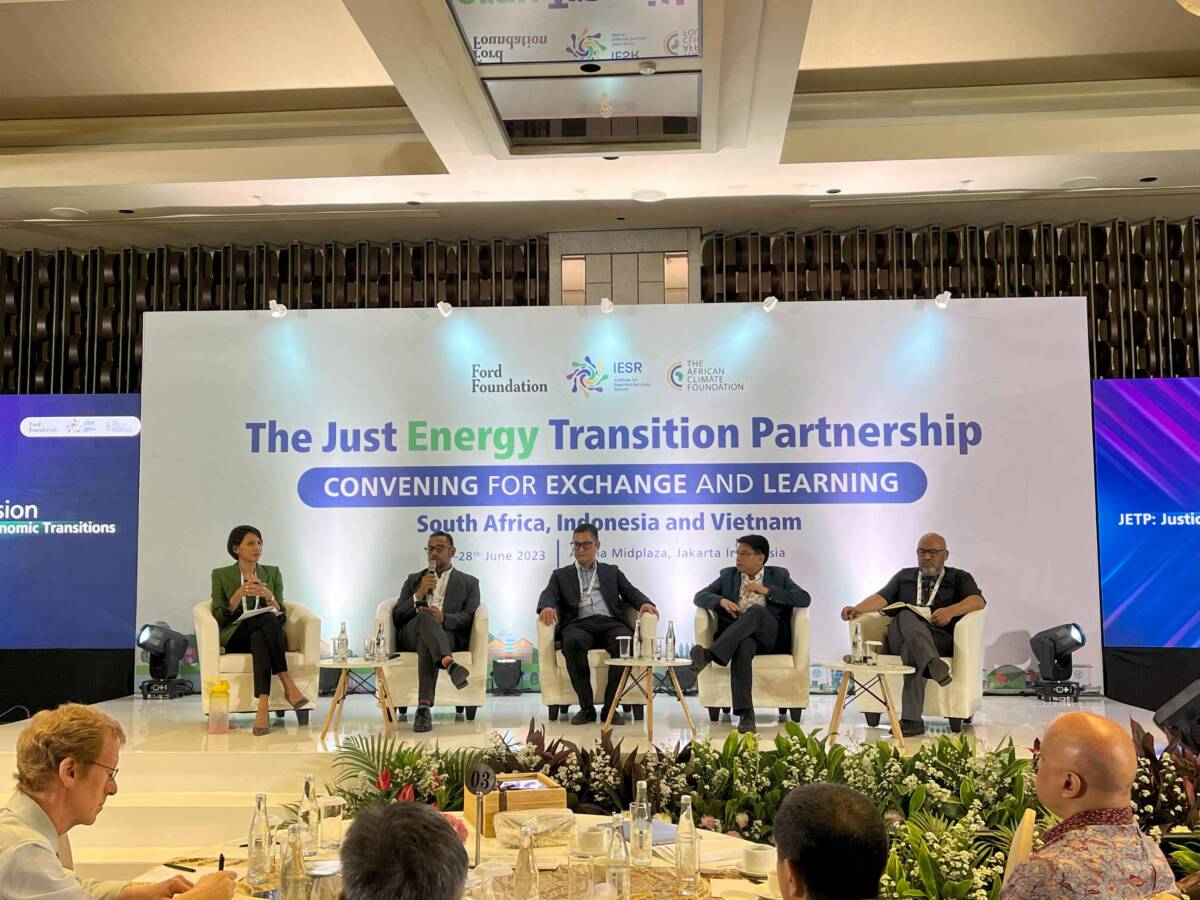
Jakarta, June 27, 2023 – Following the signing of the Just Energy Transition Partnership (JETP), three countries, namely South Africa, Indonesia, and Vietnam, promptly initiated actions to implement the agreement and prepared various strategic steps to achieve the goals of JETP in each country. The JETP Convening for Exchange and Learning Session facilitated communication and discussions among the three countries to share information and lessons learned in achieving equitable energy transition.
Dadan Kusdiana, the Director General of New Renewable Energy and Energy Conservation at MEMR, mentioned that the JETP Secretariat in Indonesia is currently in the process of drafting a roadmap to phase out coal-fired power plants (CFPP).
“We are currently discussing (within the JETP Secretariat-ed) the prioritization of the Pelabuhan Ratu CFPP in the plan for early retirement of its operations. The Ministry of Energy and Mineral Resources is also reviewing the regulations, particularly concerning asset transfers and the establishment of power purchase agreements (PPAs),” said Dadan.
Fabby Tumiwa, the Director of the Institute for Essential Services Reform (IESR), emphasized the importance of conducting the comprehensive investment plan (CIP) preparation process with transparency, clarity, and easy accessibility, while consistently involving public participation.
Furthermore, Fabby also urged the government to reform policies, among other actions, to achieve the goals of JETP and promote the widespread adoption of renewable energy.
“JETP aims to create an enabling environment for renewable energy. While the allocated 20 billion dollars may not be sufficient to achieve the targets of the Paris Agreement, we must utilize it as a catalyst to increase the share of renewable energy and phase out the use of coal-fired power plants,” explained Fabby.
Mpetjane Lekgoro, the South African Ambassador to Indonesia, also stated during the same occasion that his party prioritizes the principles of justice and inclusivity in managing JETP funding.
“South Africa is committed to utilizing the JETP to promote restorative justice in the energy transition. These investments should not only provide financial support but also uphold sustainability and security, ensuring the inclusion of those most affected,” he added.
Similarly, Dipak Patel, Head of Climate Finance & Innovation for the President’s Climate Commission (PCC) in South Africa, emphasized that a detailed discussion on equity in the energy transition is their primary focus.
“South Africa has identified three areas of equity in the energy transition, encompassing restorative justice by considering the most affected communities, procedural justice that involves all communities in decision-making related to energy and climate transition, and distributional justice that guarantees fair and equitable treatment,” Patel explained.
Examining the JETP funding allocated to South Africa, amounting to USD 8.5 million over a period of 3-5 years, Neil Cole from the JETP-IP Project Management Unit in South Africa emphasized the importance of thoroughly and innovatively integrating the JETP funding into projects at both the national and subnational levels.
“It is crucial to synchronize the top-down and bottom-up approaches in order to identify the shared requirements and collaboratively develop an actionable and inclusive implementation plan,” Cole explained.
Le Viet Anh, Director General of the Department of Science, Education, Natural Resources, and Environment at the Ministry of Planning and Investment in Vietnam, highlighted several key actions to expedite the attainment of JETP targets. These actions encompass establishing a robust, collaborative, and supportive environment among the government, international partners, and the private sector. Additionally, accelerating the institutionalization of enabling legal frameworks such as green taxonomy, green incentives, and green financing mechanisms is essential. Furthermore, facilitating the transfer of clean energy technologies, expertise, and technical know-how to enhance Vietnam’s capabilities is crucial.
“The Vietnamese government has demonstrated a strong commitment to promoting green growth through our national strategy. Vietnam has made significant green commitments at COP26, including targets such as achieving net-zero carbon emissions by 2050 and phasing out coal-fired power plants by the 2040s,” he explained.
The Just Energy Transition Partnership (JETP) Convening was jointly organized by the Ford Foundation in Indonesia, the Institute for Essential Services Reform (IESR), and the African Climate Foundation (ACF), with support from the Global Energy Alliance for People and Planet (GEAPP). The primary objective of the event was to provide a platform for stakeholders to engage in a forum for learning and knowledge exchange.
